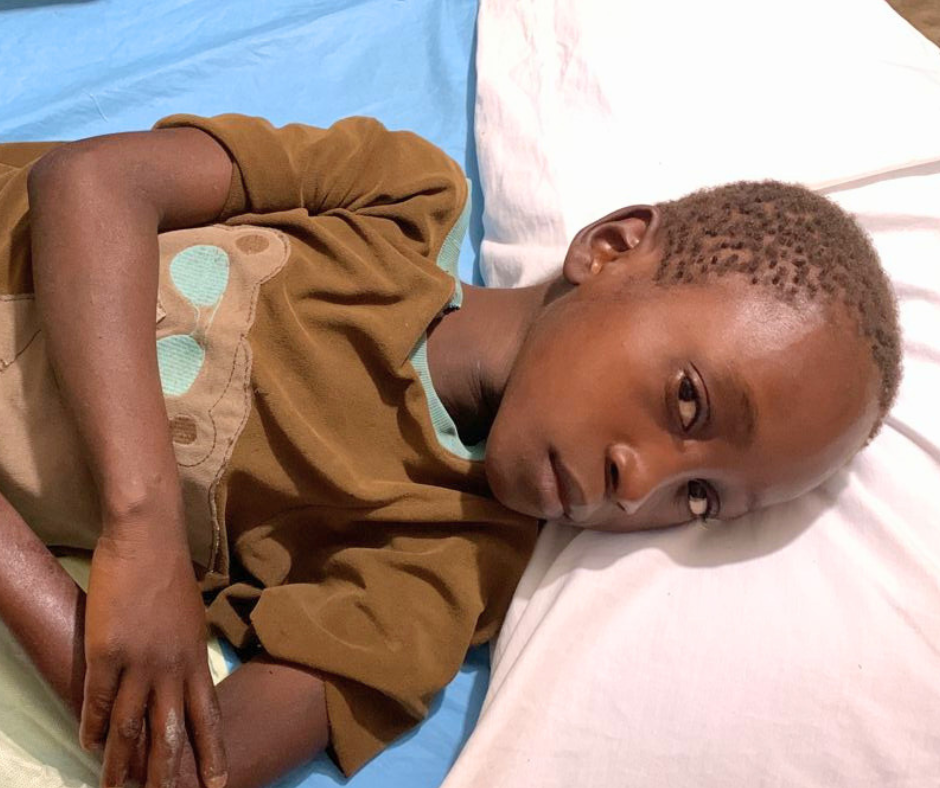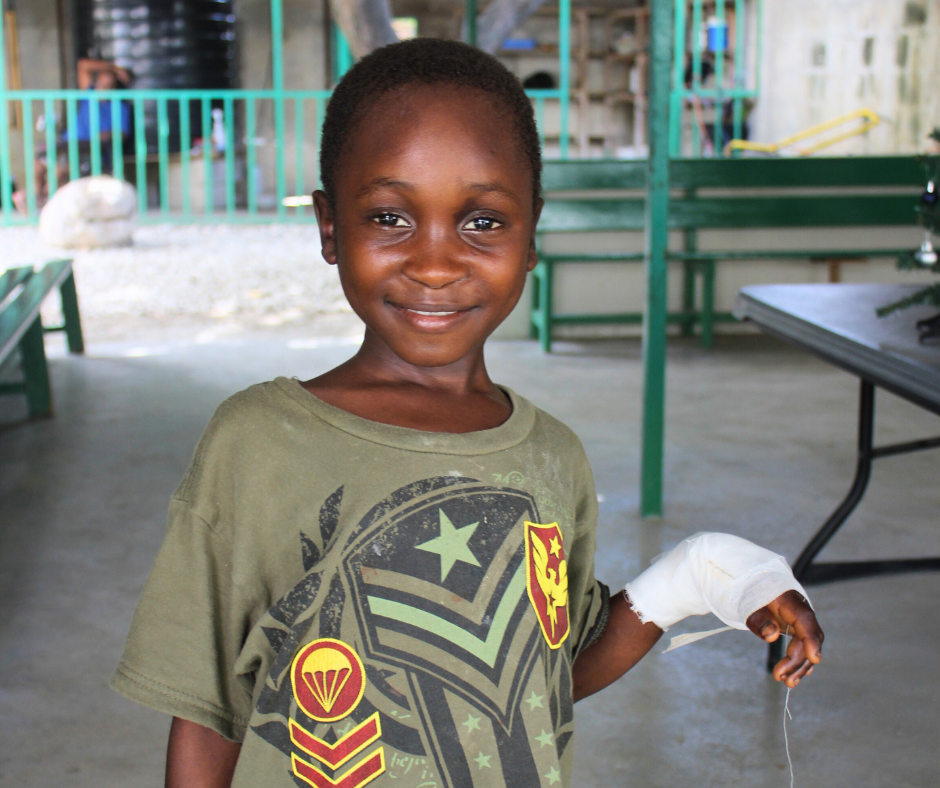In Haiti, accessing medical care is an immense challenge, particularly for people living in remote areas far from urban centers, where hospitals and healthcare facilities are scarce or nonexistent. The long distances, lack of transportation, and limited medical resources significantly worsen the situation, especially in emergencies.
Last week, a heartbreaking case reminded us of this harsh reality. A woman brought a 10-year-old boy named Merilus to the clinic. Merilus had suffered a severe injury to his left hand. He comes from Gauthier, a village located five hours away from the clinic. He lives with his father, stepmother, and his three brothers and two sisters, following the passing of his mother.
The incident occurred when Merilus was on his way to fetch water from a distant spring near his home—a daily but risky task for children in rural areas. On his way, he was violently attacked by another child, slightly older than him, who injured Merilus’s left hand with a machete. The wound was so deep that several of his fingers may never regain full mobility.
At the time of the attack, Merilus was alone. The aggressor fled immediately afterward, fortunately preventing further harm. Despite the pain and severity of his injury, Merilus managed to return home. His parents were shocked and devastated by what had happened but could only provide basic first aid care. They had no choice but to wait until the following morning to bring him to the clinic due to the lack of immediate access to medical facilities.
By the time Merilus arrived at our clinic, he was in intense pain, and his condition had worsened. The wound, untreated for hours, had already become infected, causing him to develop a fever. Given the distance he had traveled and the urgent need for proper medical attention, we decided to keep him at the clinic to provide intensive care and prevent further complications.
This tragic episode underscores the extreme vulnerability of people living in rural areas of Haiti. For them, even a seemingly simple injury can escalate into a critical emergency due to the lack of nearby healthcare facilities. Long journeys, often on foot, combined with limited local medical resources, put the health—and sometimes the lives—of those in remote communities at serious risk.



